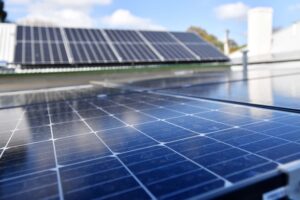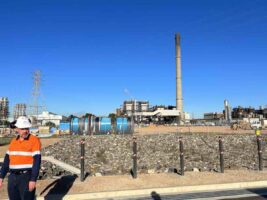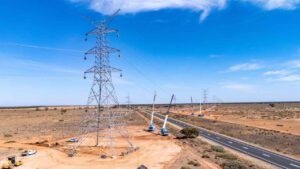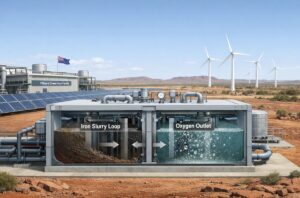Australia has cut its total carbon emissions for the second year running, according to new figures released by the federal government yesterday, an achievement – coming at a time of economic growth – that is being largely attributed to the electricity sector and, more specifically, the introduction of more clean, renewable energy into the power mix. Clean Energy Council acting CEO Kane Thornton said the analysis from the Australian National Greenhouse Accounts shows that overall greenhouse emissions dropped about 1 per cent in the year to September 2011, while electricity emissions dropped 3.2 per cent during this period.
“Hydroelectric power was up just over 10 per cent due to the excellent rainfall in key hydro areas, while coal and gas generation both dropped,” Thornton said. “Better energy efficiency and the increased use of technologies such as solar power, wind power and solar hot water were some of the factors that the government said contributed to the strong result.” Thornton also credited Australia’s bipartisan 20 per cent Renewable Energy Target, which he said was “starting to work,” despite still being in its early stages. “The industry looks forward to working with all sides of politics to accelerate the roll out of clean energy across the country,” he said.
Hydrogen fuel powered by wind? Fill ‘er up!
Europe’s largest hydrogen filling station was opened last week in the German port city of Hamburg. The company behind the facility, Nordic utility Vattenfall, says it has the capacity to fuel about 20 buses and several cars a day – it will produce its renewable fuel through electrolysis, a chemical process that uses electricity to break down water into oxygen and hydrogen – and will be powered by at least 50 per cent renewable energy.
Oliver Weimann, head of Vattenfall Europe Innovation GmbH, said in a statement that storing wind power by converting it to hydrogen was “an important approach that could play a key role in the future German energy landscape,” reports Bloomberg – Germany is seeking to install 25,000MW of offshore wind turbines by 2030 as it phases out atomic energy by 2022. Vantenfall Europe funded 43 per cent of the €10 million investment, with the rest footed by the German Transport Ministry.
Hill quits Low Carbon Australia
There’s been a shuffling of the boardroom at Low Carbon Australia this week, with former federal environment minister Professor Robert Hill stepping down from his post as inaugural chair of the organisation, and Martijn Wilder, head of law firm Baker & McKenzie’s global climate change practice and existing Low Carbon Australia board member, stepping in as acting chair until a permanent replacement is announced.
Hill was environment minister in the Howard government from 1996 to 2001, and was present at the landmark Kyoto Protocol negotiations in 1997 with current Low Carbon Australia chief executive Meg McDonald assisting him as Australia’s environment ambassador. He later served as Australia’s permanent representative to the UN, from 2006 to 2009.
Low carbon Australia was set up by the federal government in 2010 to advise Australian business, the public sector and the wider community on energy efficiency, cost-effective carbon reductions, and accreditation for carbon neutral products and organisations. In a statement on the organisation’s website, the Low Carbon Australia board and management said that Professor Hill had left it “well positioned” to continue to build on this role.
Cut carbon to cut risk, say investors
Some of the world’s biggest investors have this week written to some of the world’s biggest polluters, urging them to cut carbon-dioxide emissions to protect themselves against future climate policies. BusinessWeek reports that the London-based not-for-profit group Carbon Disclosure Project sent the cautionary note to 415 unnamed companies – among them utilities, manufacturers, transport companies, retailers and communications groups – on behalf of 92 banks, asset managers, pension and insurance funds, with an estimated $US10 trillion under management, including Banco Santander, Henderson Group and Axa.
“The external costs of greenhouse gas emissions will become internalised into company cash flows and profitability,” Paul Abberley, CEO at London’s Aviva Investors said in an emailed statement on Monday. ‘‘Managing greenhouse gas emissions is therefore essential to delivering sustainable shareholder returns.’’ Last week, former US vice president Al Gore expressed a similar concern, says the report, when he said that investors who ignored the cost of emitting carbon were making a mistake not unlike those who invested in subprime mortgages. And earlier this month, the Bank of England said it would evaluate whether UK investments in emitting industries posed a risk to financial stability.







